Explore the different types of peccaries found in Costa Rica, as well as their importance in the local ecosystem, habitats, behavior, and social structure.
GVI
Posted: May 10, 2023

Petrina Darrah
Posted: August 1, 2022
Wildlife internships are a chance to gain practical experience and professional development. GVI’s wildlife conservation internships boost opportunities for careers in the industry.
Do you want to work with animals while living in a beautiful location, and contribute to a cause you believe in? Conservation jobs are the ultimate dream for animal lovers who are passionate about protecting wildlife and natural habitats.
But you’re unlikely to just fall into an awesome wildlife job. To make a career out of your passion for conservation, you’ll need to work hard to get the right skills and qualifications.
Here’s why a wildlife internship can be a big step in the right direction.
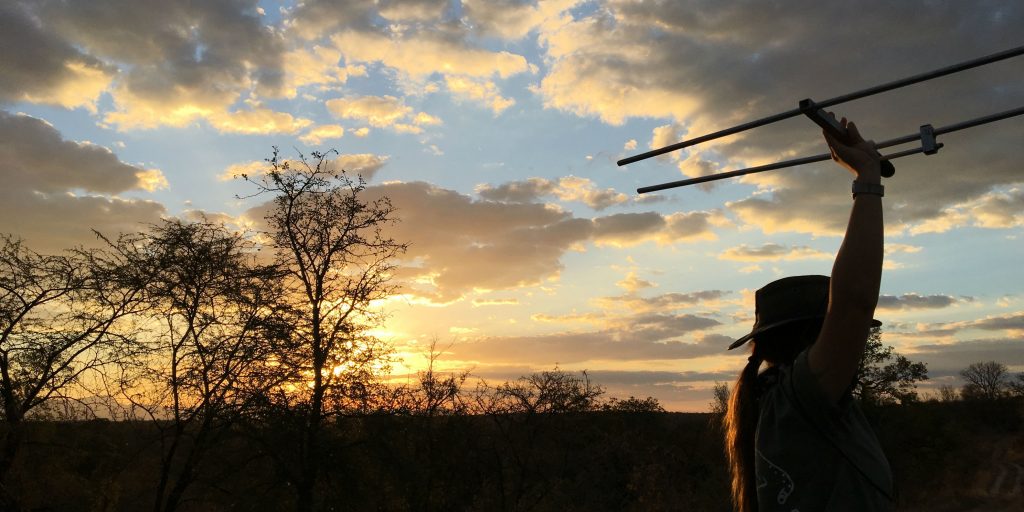
Like most jobs, getting wildlife conservation jobs can be a catch-22 situation. Employers usually look for people with experience, but at the same time, you need a job to get that experience.
Finding conservation jobs isn’t easy because of how competitive the industry is, and landing a position in the field is getting tougher. A survey by Conservation Careers, the largest jobs website in the field, revealed that 92% of conservationists believe it has become more difficult to find a conservation role in the last decade.
If you want to find a place for yourself in the conservation field, you’ll need a few key attributes.
To get started in a conservation career, you’ll need to love what you do. You’ll probably experience long hours in remote locations in the field and sometimes work in tough weather conditions.
Having a passion for the work you do will keep you motivated to work hard through any situation.
Many people looking for a job in conservation need to have at least a degree in a conservation-related field, such as biology, ecology, natural resource management etc. The Conservation Careers website reports that 19% of applicants have a doctorate degree.
While getting a qualification – especially a doctorate – isn’t essential, having some tertiary education in the field will definitely give you a leg up in landing the job.
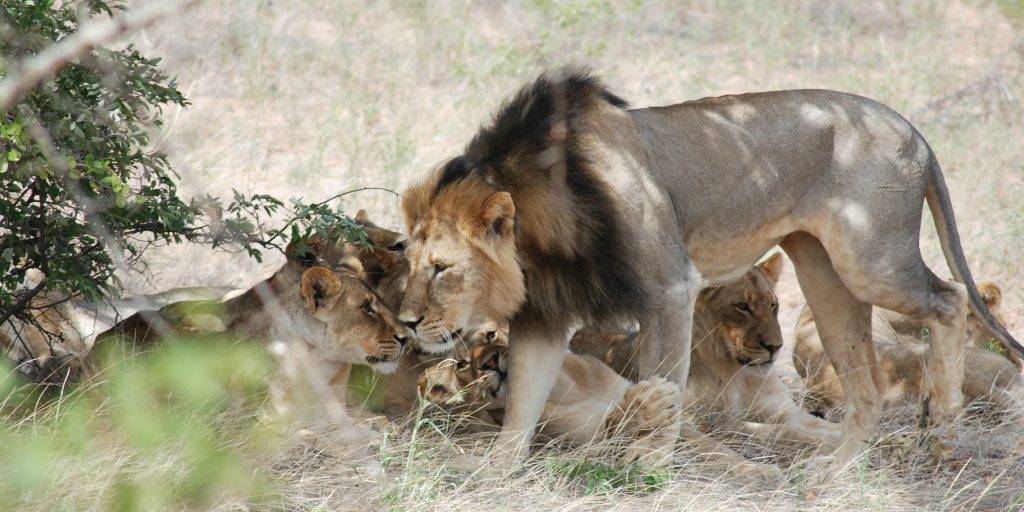
Passion and an education aren’t all you’ll need to start your career in conservation. Practical experience is essential to landing a job in wildlife conservation.
Having practical experience shows that you know how to apply your knowledge on-the-ground. Jobs in wildlife conservation require hands-on work, and being able to display these practical skills will put you ahead of your peers.
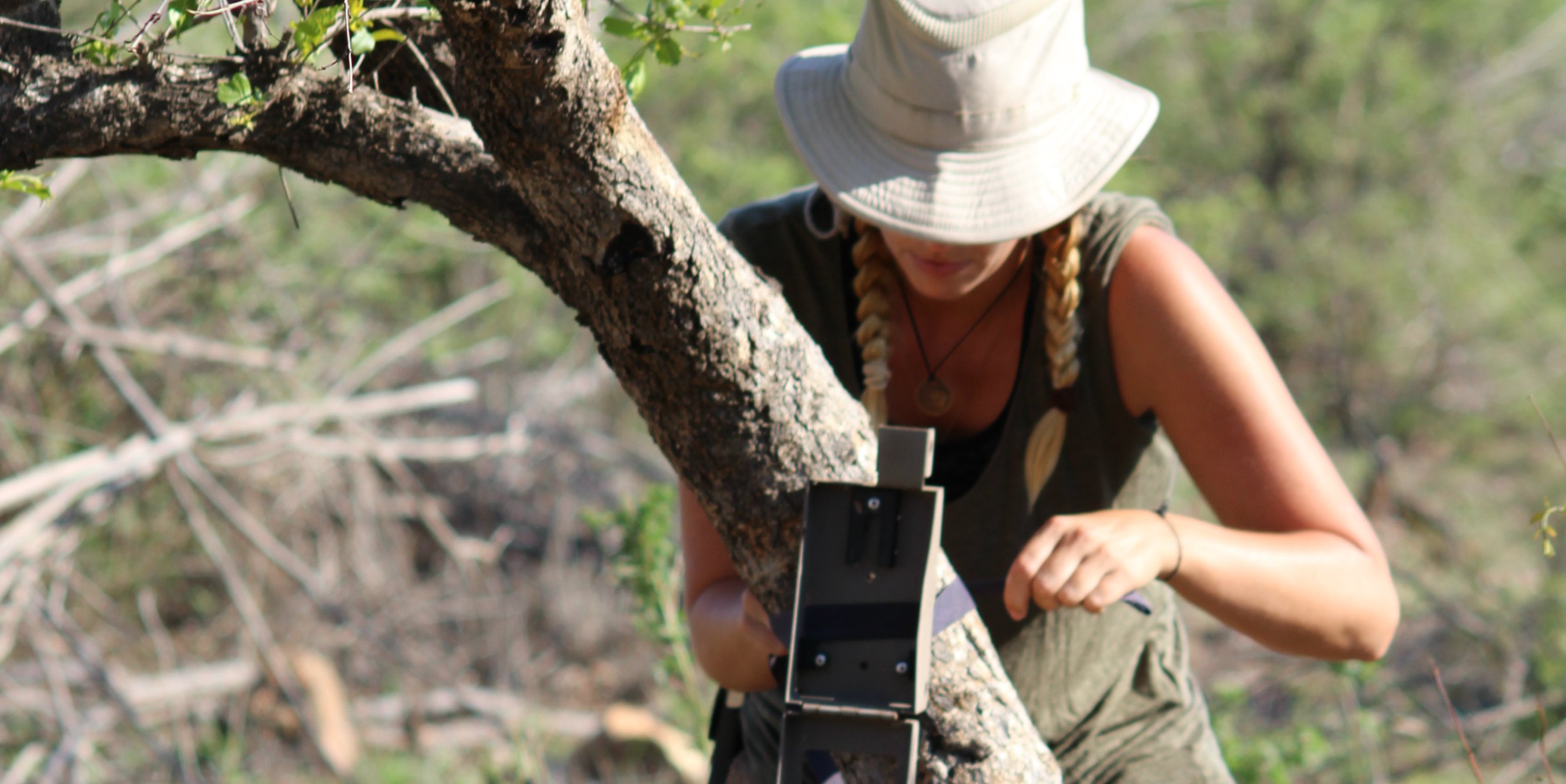
Choosing an Africa wildlife volunteering program or internship can help you gain the skills and experience you need to be successful in finding your dream conservation job.
As well as getting hands-on experience, you’ll also be able to get a taste of what it’s like to work in wildlife conservation. You’ll build your resume and develop your network as you get to know people working in the field. If you put your heart into it, an internship could launch your conservation career.
Employers in the industry love to see that you already have field experience. For example, completing an internship will show that you have an understanding of conservation research and methods of data collection, and that you know how to put this into practice.
And when the time comes to send your CV in for a job, having an internship on it will also demonstrate that you aren’t applying for the job on a whim. It’ll show that you’ve dedicated time and effort to learning about conservation and taking the right steps for your career.
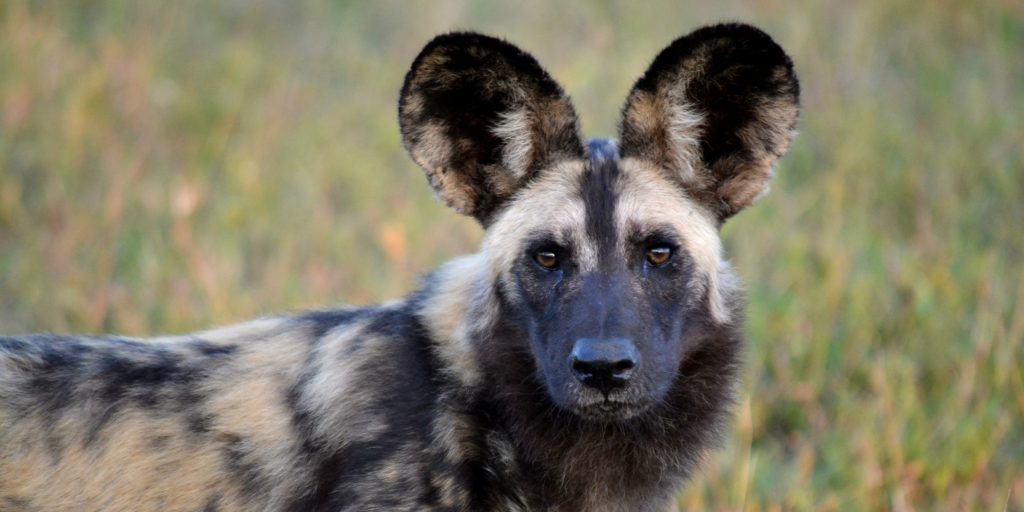
Doing an internship in this field will give you a better understanding of how you can work with animals ethically and sustainably.
GVI is committed to working ethically with animals. Contributing to animal and environmental conservation means sticking to strict standards around how volunteers and interns engage with wildlife. For example, GVI doesn’t support getting close to wild animals, as this can interrupt their natural behaviour and put participants at risk.
If you’re drawn to conservation jobs because you want to work closely with animals, an ethical conservation internship will give you realistic expectations of what it’s really like to work with wildlife.
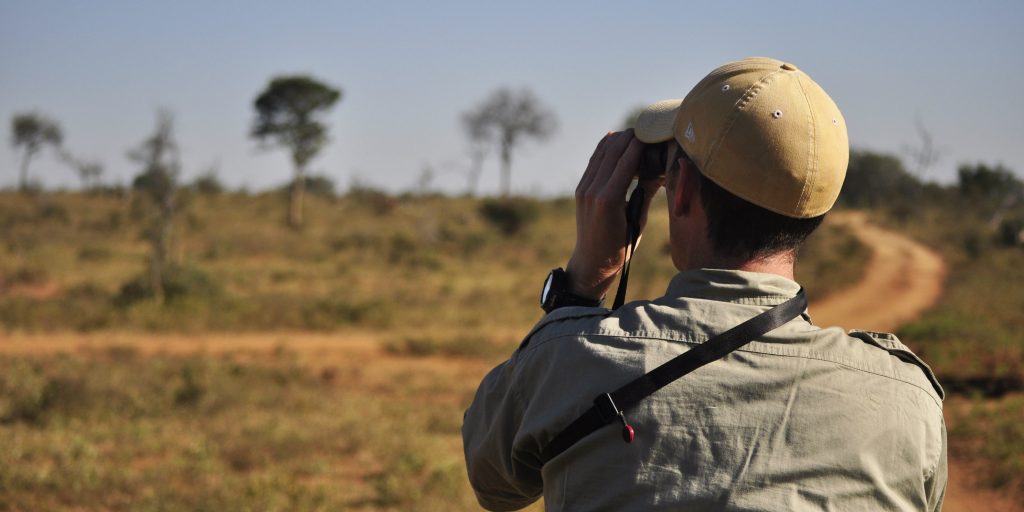
Conservation internships in South Africa are a gateway to jobs in African wildlife conservation. You’ll learn first-hand about conservation techniques on private game reserves and gain access to a network of professionals within the industry. You’ll also get practical field training on skills such as animal-tracking.
The biodiversity in South Africa makes it an excellent location for wildlife internships. You’ll be able to choose from a range of programs that cover different areas of expertise.
On top of that, you’ll have the chance to travel to some of the most sought-after tourist destinations in your free-time and find out if living in remote wilderness areas is for you.
Let’s find out about the type of work you can get involved in.
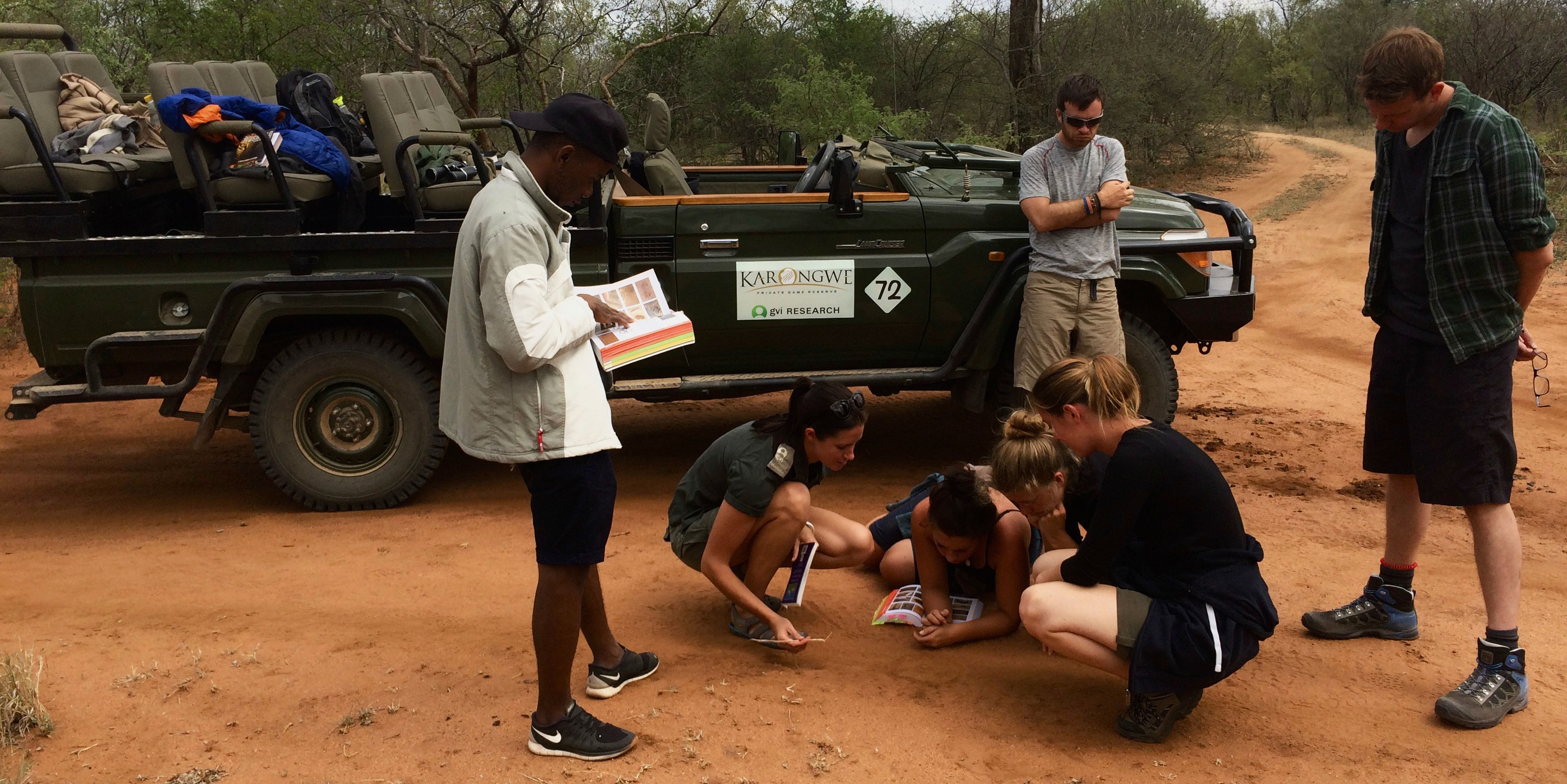
If doing research is what you most look forward to in the conservation industry, a wildlife conservation and research internship in South Africa could be a good match for you.
Over the course of the program, you’ll learn the necessary skills to become a seasoned wildlife field researcher. These include the ability to drive a 4×4 vehicle, manage a camp, identify flora and fauna, and collect and analyse data.
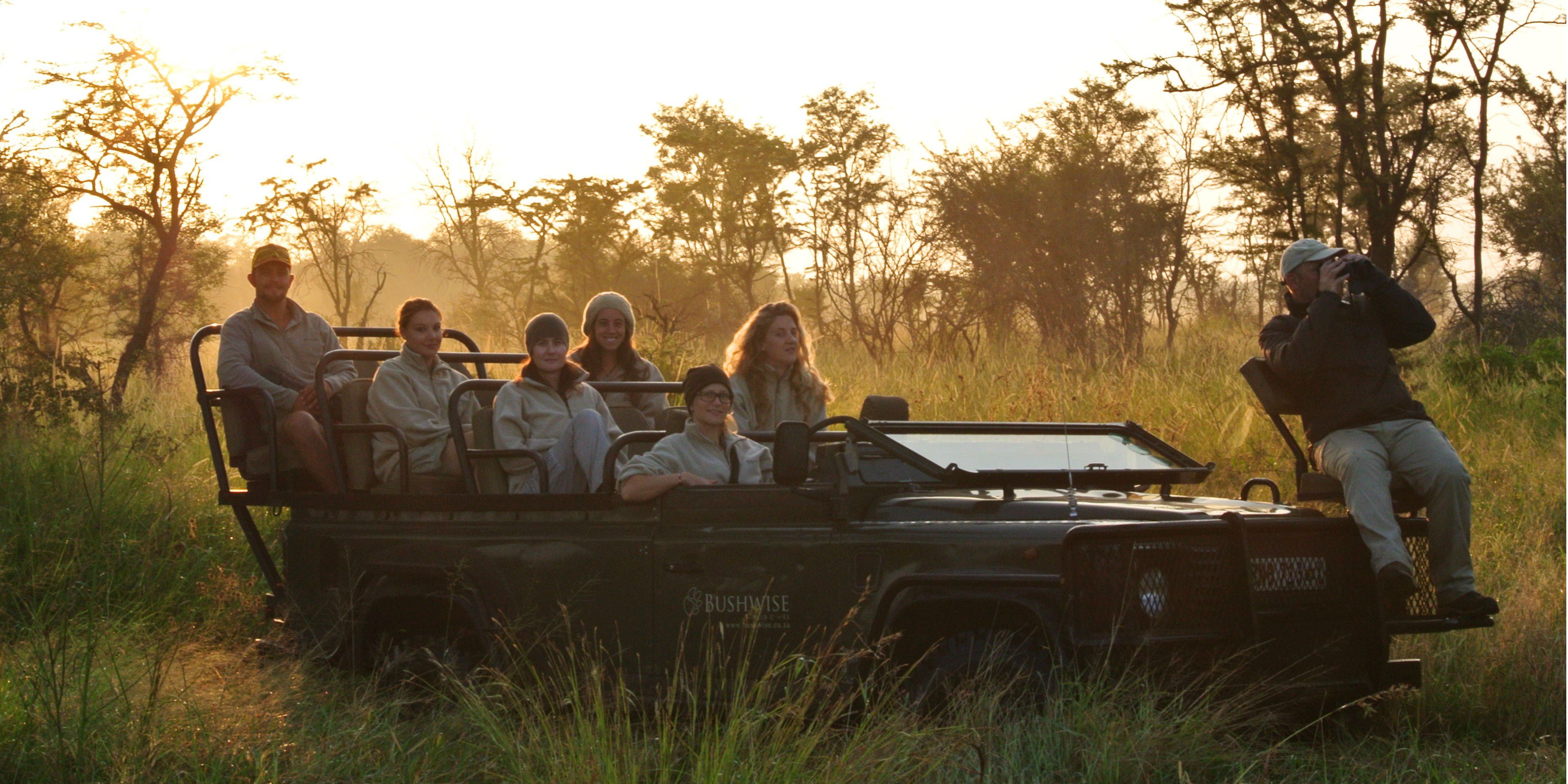
Through our sister company, Bushwise, you can become a Field Guides Association of Southern Africa (FGASA) qualified apprentice field guide in six short months. On this course, you’ll learn everything you need to know – from animal behaviour to advanced rifle handling to hosting guests and everything in between – to enter the safari industry as a top-rated candidate.
This course emphasises both practical fieldwork and theory-based study, allowing you to gain coveted experience and improve your skill set.
As an accredited course with a guaranteed placement afterwards, this course is a fantastic way to launch yourself into the competitive conservation industry.
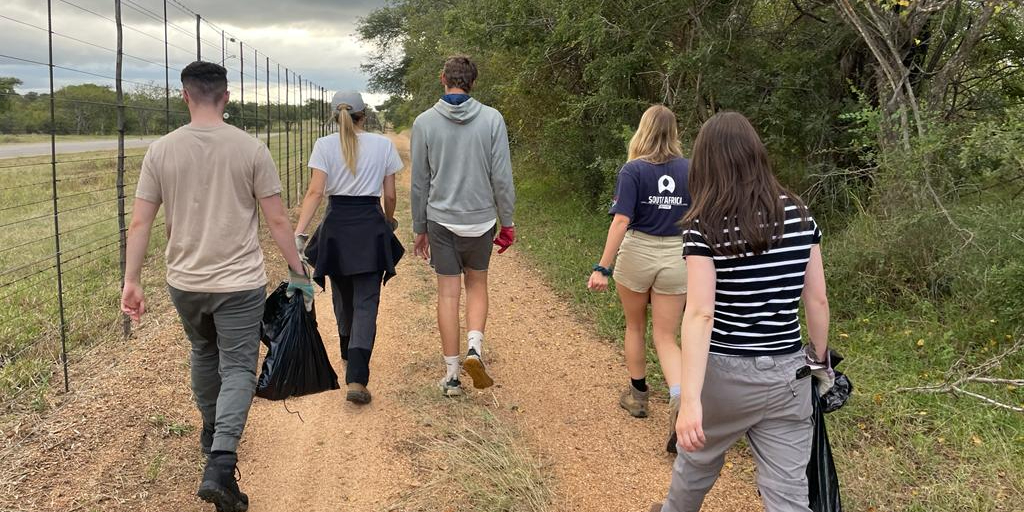
GVI’s wildlife conservation internship in South Africa gives you the chance to complete 23 weeks of detailed on-the-ground training before putting your skills to use with an optional one-, three- or six-month non-guiding placement.
This will boost your practical experience, look good on your resume and put you ahead of your peers in finding a job in the industry.
And, working with an international research team in a private nature reserve and partnering with reputable conservation organisations, means that you’ll learn from seasoned professionals in the field.
This valuable industry exposure will also up your chances of finding a job at a reputable organisation in the wildlife conservation field after your internship.
Kick-start your wildlife conservation career with a wildlife conservation internship abroad.
By Petrina Darrah
Explore the different types of peccaries found in Costa Rica, as well as their importance in the local ecosystem, habitats, behavior, and social structure.
GVI
Posted: May 10, 2023